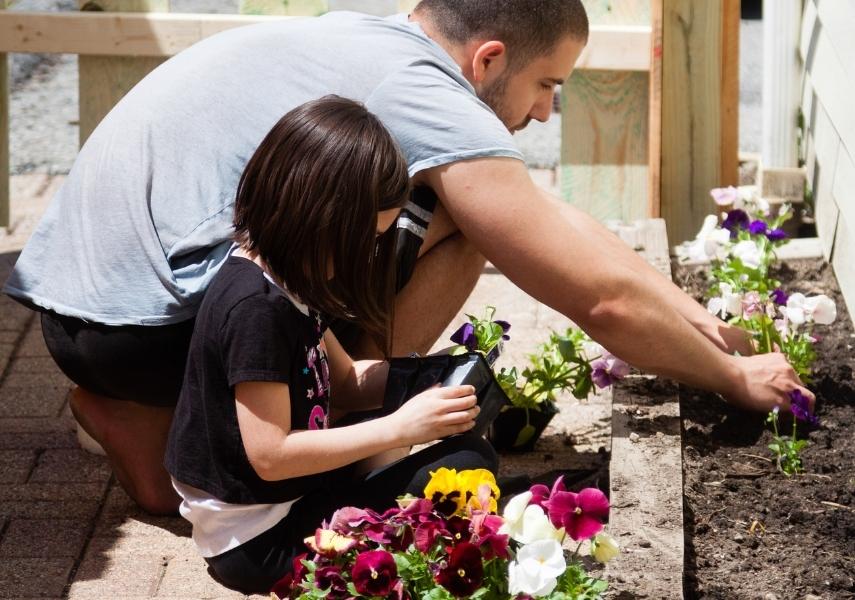10 Useful Outdoor Gardening Tips for Beginners

Many people believe that gardening is something only those with proven ‘green fingers’ should undertake. Personally, I think everyone should make a go of gardening because it is so rewarding, not to mention the fact that it gets you active and outside.
But outdoor gardening should not be an intimidating hobby even for beginners as there really is no exact science to gardening. This means that mistakes are bound to happen even for those that call themselves “expert gardeners”.
Knowing the basics is the best way to start gardening. Here are 10 useful gardening tips for beginners:
Know your soil
Is your soil type sandy and light or is it clayey and heavy? Knowing the type of soil you have in your garden determines the kinds of plants to invest in. Take a peek at the garden of your neighbours if you’re not sure of the soil type or take a sample to your nearest nursery for their advice.
Have the correct implements
It is important to have the correct implements when working in the garden. Beginners do not need fancy implements, they just need the basics to start off with. Of equal importance is to look after your implements which can be done by washing them after use, oiling them regularly and ensuring that they have no rust on them.
Location is key
Once you have established the type of soil you have in your garden as well as the plants you would like, make sure that they are planted in the correct area. Some plants prefer full sun whilst others grow best in shaded areas. This applies equally to potted plants so be aware of where those are placed indoors and/or outside.
Picture the design of your garden
Plan out your garden’s design before you start digging. If you can draw, try to do the design on paper. If you prefer to do the design in the flower bed itself, then arrange purchased young plants and bulbs on the surface of the soil and arrange them as per preference. A useful tip to create the edging of your flower bed, is to use your hosepipe to line the shape. You can then spray paint the grass to keep the line when you are digging. Once ready, you can start planting.
Put space between plants
Young plants that are planted too close together may not survive. Keep it simple by giving them ample space. If you are planting seeds, read the seed packets to find out the right space to use. Alternatively, research the correct spacing or ask at your nearest nursery.
Soak the roots of new plants
Make sure to soak the roots of new plants before planting them. Of equal importance, is to make the hole you’re planting into bigger than the size of the root.
Water only as needed
Daily watering is not required. The best yardstick to measure whether plants need watering is to poke the soil with your fingers. If it’s too dry, then water the plants. Since there is growing concern about water shortage, you may want to investigate planting only indigenous plants as these are more adaptable to the climate.
Lush green lawn
Lawn maintenance is important all year long if you want it to remain green and lush. Merely cutting the grass does not mean you are maintaining it. First of all, mow your grass with a good lawnmower and don’t mow it so low that you can see the soil beneath. Fertilise your grass and if possible, compost it once a year. It is also very useful to make holes throughout your lawn with your garden fork to aerate the soil.
Get rid of weeds
A plant’s worst enemy is weeds so make sure to weed as regularly as possible. Weeding is the most frustrating part of gardening but if you add mulch to your garden beds, the weeds are less likely to spread quickly because they won’t get much light. Mulch can be wood chips, bark nuggets, nut shells, straw or even pine needles.
Start a compost bin
Compost is easy to create at home if you know how and your garden will love you! Decomposed organic materials such as leaves, grass clippings, kitchen waste and even coffee grounds can be used to create your own compost. You can create a large compost space outside, or have a smaller one in your kitchen. Compost improves your soil and is packed full of essential nutrients for plant growth.
